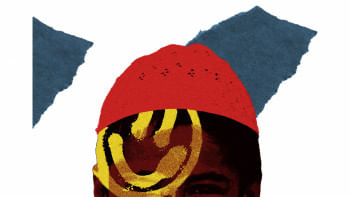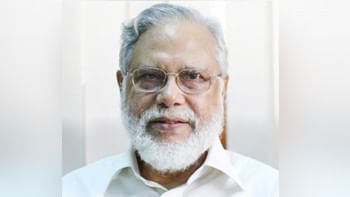Sex Education: No Need to be Shy

When we hear the term sex education, we instinctively visualise a Norwegian classroom with a television playing out condoms on bananas while 20 high-schoolers of both genders sit side-by-side in awkward silence interrupted by giggles. We might also imagine a fiery speech on consent in the halls of a university while sex week is ongoing and everyone participates in fun pop quizzes with prizes. What we frequently forget is that sex education in a country can and should exist on multiple levels, multiple institutions, and multiple perspectives.
Even ChatGPT (which borrows heavily from a previous article I wrote for The Daily Star) will tell you that there is no perfect sex education. It is all about designing age-appropriate, inclusive, system-backed sex education and if prior experience holds true, Bangladesh is capable of executing such an improved level in schools, colleges, and universities, if public and private institutions align their priorities.
The Minister for Education stated in a 2022 September interview that one of the most important factors for mental and physical health is knowing about sexual and reproductive rights. "Sexual and reproductive health awareness allows people to make decisions together through mutual respect rather than imposing decisions on each other. It even plays a role in preventing gender-based violence." Organisation of the Islamic Cooperation (OIC) dictated covenants to showcase how central sex education, in particular comprehensive sex education (CSE), is to the wellbeing and development of children. Just as you cannot raise a child without basic education and skills into the world, so you cannot deny them an understanding of their anatomy and the basic values that drive their behaviour. Many non-government advocacy agencies have proposed that there be broader engagement on not just the biological aspects of sexuality but also relationships, values, and media literacy.
Generation Breakthrough, a continuation of the Gender Equity Movement in Schools (GEMS), is a government project which the Directorate of Secondary and Higher Education (DSHE), in association with United Nations Population Fund (UNFPA) launched to introduce education on building healthy relationships to prevent gender-based violence, meet sexual and reproductive healthcare needs and establish rights of adolescents. In 2022, the Ministry of Education ventured into the second phase of the Generation Breakthrough, launching it in a wider variety and number of schools across the country. Students who experienced GEMS recollect a positive learning environment with plenty of exercise-based lessons around sexuality and reproductive health as well as relationship-building and values. It is a move in the right direction, an under-rated move at that, so why is the rest of Bangladeshi society lagging behind?
Lack of concerted effort
I have a number of hypotheses as to why sex education of adolescents fails to gather a collective effort. I believe the prime reason is one common in policy circles—the inability to prioritise. In a country where we try to disseminate virtually everything through nine to 10 textbooks in every class, sex does not make the cut of the list of priorities. It is tempting to let it slide in the face of digital education, freelancing, the hundreds of tests that plague a child since they become old enough to compete with others. Ideally, you do not want to test children on their understanding of consent or respect, you want to build in the values so that they become intrinsic parts of their broader psyche. That requires years of consistent and considerate teaching and engagement that few schools, if not teachers, can afford. Just as television shows clamour for air-time, so too does the many subjects and values and histories we wish to impart to the next generation. We seem to be under the assumption that the more information we can inject into young people, the better, without any thought to their growingly unsettling workload. When everything is a priority, nothing is.
Comprehensive sex education from multiple quarters—schools, parents, communities—is not a very popular move today. Sex education by the terminology itself is very triggering, eliciting favour or vitriol depending on the receiver. A highly charged topic in conservative quarters, many people attempt to use religion as a reason to prevent any discussion on the topic. The fact remains, 1990s Bangladesh was far more open to new ideas and new ways of thinking to prevent a population boom that would cripple families. Now that it is in a much more stable place with a booming economy, the place for liberal conceptualisations, of which presumably sex education is one, is even more uncertain. It often does not matter if the sex education material distributed includes moral and religious lessons, or if it excludes mention of gender and sexual identity and exclusively focuses on consent, relationships and respect. It is simply enough that it is on the table.
The last reason why comprehensive sex education is not on the table of priorities is because the results lie in the long-term. Population control has a nearly immediate effect on economic welfare, and is readily observed across homes if given only a few years. The long-lasting impacts of a moral education to growing children is virtually unobservable by policymakers and leaders of today. After all, it is tempting to think that one can prevent and police gender violence through force or by media as opposed to a continued national scale enforcement. Unlike AIDS, which had a visceral immediate impact on the victims, sex education is merely an idea that can be pinned down to increased law enforcement or social enhancement.
So how do we put sex education back on the table?
We must pursue tried and tested models, leaving the school classroom as a safety net and targeting the community. The village uthaan is still a familiar refuge for children up until a certain age, and so is the local field in urban settings. These are the places where one can run open games and exercises to teach young people on the go. Onboarding families is a critical part of ensuring this community outreach. Just as the NGO apa took turns to teach women across the country the basics of contraception, so too must they remind them of the heavy cost women particularly have to pay when communities do not prevent gender-based violence through efforts such as sex education. Instead of a school-centric education mechanism, policymakers must identify communities and clusters and emphasise re-education in phases similar to Generation Breakthrough. The fact remains that we cannot wait for a more enlightened generation to take over and right the wrongs we commit. A community approach teaches the youngest and oldest the basic tools to survive in relationships, public and professional settings. We could all do with brushing up on that.
A more direct route that many might not like is relentless media campaigns and especially, jingles. Although it is tempting to assume that due to Bangladesh's fast approaching elevated social and economic status, the age-old jingles and direct interventions of the past will no longer work, the fact is that so-called sophisticated messaging often holds little sway in word-of-mouth. "Bachte hole jante hobe" was a phenomenal AIDS awareness campaign, and if we can convince Momtaz to take a break from Coke Studio Bangla and parliament, she may yet deliver one of her best performances when it comes to social awareness.
Mastura Tasnim is a policy consultant working on local development, religiopolitics, and gender education and Shaniz Chowdhury is an intern at Centre for Policy Dialogue.

 For all latest news, follow The Daily Star's Google News channel.
For all latest news, follow The Daily Star's Google News channel. 






Comments